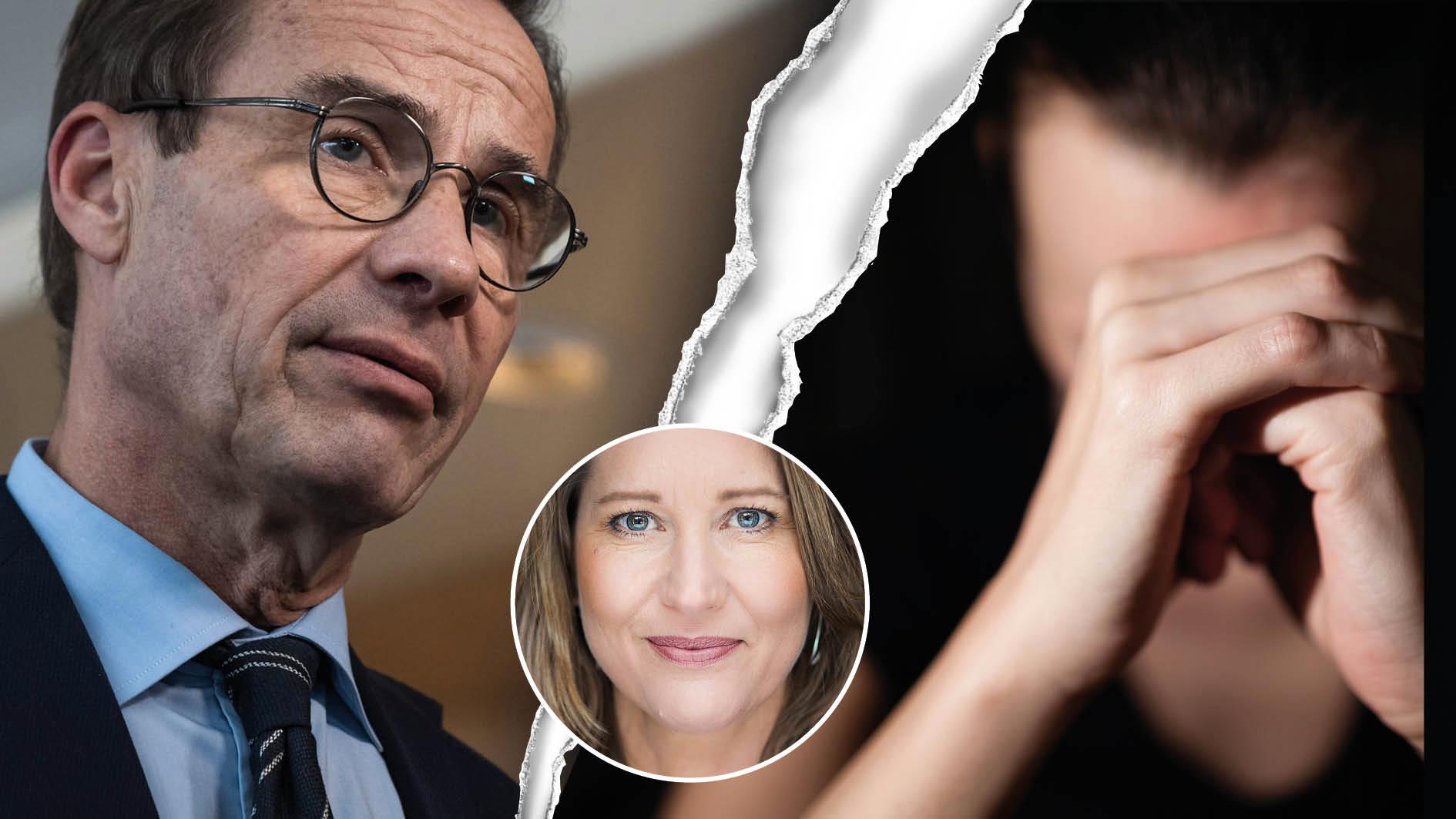Open letter to the government: Today, suicide makes up 93 percent of all fatal violence
Published: Today 15.00
This is a debate article. It is the writer who stands for the opinions expressed in the text, not Aftonbladet.

DEBATE. Ulf Kristersson, we are addressing you directly as Prime Minister and your government to convey the strong concern we feel for the mental health of the population.
Mental health problems have been on the rise for a long time, for many different reasons, and suicide currently accounts for 93 percent of all fatal violence in Sweden.(93 procent av allt dödligt våld i Sverige.)
Suicide among young adults (ages 20–29) also increases every year by 1.8 percent.(ökar dessutom varje år med 1,8 procent.)
Several known risk factors for mental health problems and psychiatric diseases and conditions, such as long-term unemployment, social vulnerability and school failure, are going in the wrong direction.
The increasing uncertainty in life and the outside world in recent years has also made an impression on people's mood and is reflected in an increased pressure on Mind's guidelines. Despite a 30 percent increase in calls received annually, we are only able to receive one in ten calls to the Suicide Line with existing resources.
The increase in mental health problems has been going on for several decades and today a full 41 percent of all adults state that they have mental health problems in the form of anxiety, worry or anxiety.
From having been relatively stable in the years 2004–2015, the percentage reporting problems with anxiety, worry or anxiety increased in five years, from 37 percent in 2015 to 49 percent among women and among men from 24 percent to 33 percent.
The proportion of adults who suffer from anxiety, worry or anxiety is much more common among people with lower incomes than among those with higher incomes, and the differences are greatest for severe complaints.
The number of children and young people who received care for depression or anxiety disorders in child and youth psychiatry has more than tripled in the period from 2006 to 2019.(tredubblats under perioden 2006 till 2019.)
Diagnoses such as eating disorders and self-harming behavior have also increased sharply in the last two years.
When Mind, through the campaign #worrycloud, collects what is behind people's worries, it is clear that the climate, racism and the economic situation stand out.
To meet this concern, a policy is needed that does not discriminate between people based on their origin, that does what is necessary to achieve the goals of the Paris Agreement and that prioritizes targeted support efforts for those in our society who are vulnerable.
It is the individuals with the narrowest margins who are hit hardest by increased living costs, it is the same groups who are also at the highest risk of suffering from severe mental illness.
It is crucial for young people's psychological well-being and conditions in life to have a complete upper secondary education. Politicians must take responsibility for ensuring that every young person gets the support they need to pass school.
In the government declaration, you give a binding answer to this, by declaring that you want to "lead a government for the whole of Sweden and for everyone who lives here".
The new government has already drawn attention to the need to shorten care queues and to introduce more systematic and nationally coordinated work to prevent suicide - we welcome that.
If we are to manage to reverse the trend of increased mental health problems and more suicides among young people, however, it is not enough to invest in more care facilities or mandatory accident investigation centers when it has gone so far that a person has committed suicide.
We are calling for proposals from the government regarding both preventive work and suicide prevention.
Access to quick and effective care and treatment as well as better assessment of suicide risk is needed. We also wish that risk groups are caught with greater systematics and that young people have access to conversational support through strengthened student health.
We are also asking for better collaboration around individuals with mental illness that leads to a clear acceptance of responsibility.
Politics needs better tools to be able to carve out functioning systems at national, regional and municipal level to work cross-sector, promotion and prevention with social sustainability across authority, administration and operational boundaries.
We therefore want to see a cabinet responsible for coordinating and directing policy to promote mental well-being and for the government to introduce health integration that analyzes and takes into account the effects of political proposals on people's health.
It is possible to create a more humane society with better conditions for the well-being of the population. There are many of us who are ready with political proposals and a strong will to roll up our sleeves to help turn the tide.
Don't forget to use the power and competence that exists in Swedish civil society to lead Sweden from a divided country to a united country.
Karin Schulz, Secretary General, Mind
Inga kommentarer:
Skicka en kommentar